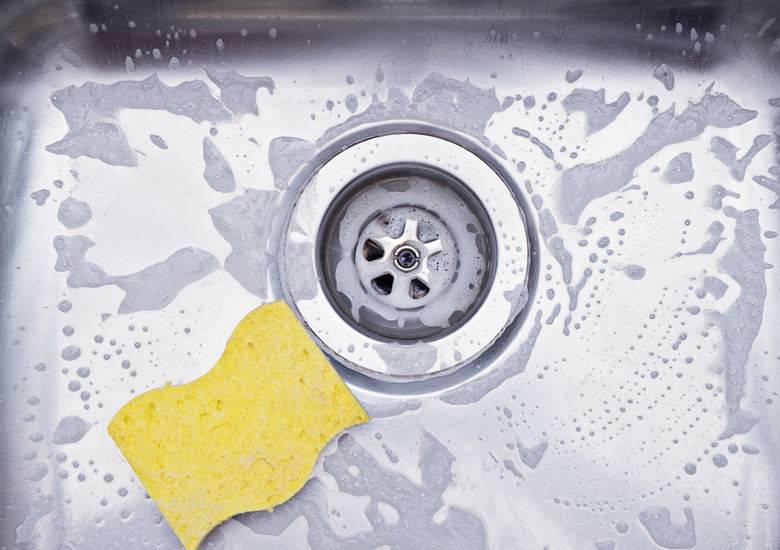How To Dry Out A Sponge
Lurking in your kitchen is a germ-spreading disaster — the kitchen sponge. Cared for properly, a kitchen sponge makes quick, light work of cleaning up, but most people aren't caring for their sponges correctly, and kitchen sponge bacteria could be making you, or your family, sick. Here's what you need to know.
Motivation for Cleaning Sponges: Facts
Motivation for Cleaning Sponges: Facts
Back in 2017, a study came out that struck fear in the hearts of chefs and cooks around the country, in which the volume of bacteria in a kitchen sponge was likened to that of what's in your toilet. The German microbiologists behind the study reported finding 362 different species of bacteria at a rate of 45 billion per square centimeter (or roughly 290 billion per square inch!). The folks at NPR compared that to cramming every person who lives in Manhattan into the Rockefeller Ice Rink.
But what the news agencies covering the study got wrong was reporting that these dirty sponges were impossible to get clean. After a certain point, yes, but also, no, because you can indeed clean a sponge. The most important thing to get right is to have it dry out completely between uses — preferably after soaping it up and rinsing it clean.
There are just five bacteria responsible for about 90 percent of food-borne illnesses, though, and as gross as kitchen sponges can get, they're not commonly found in sponges, so the Great Sponge Hysteria of 2017 was a little overblown.
Proper Sponge Care
Proper Sponge Care
- Does your kitchen sponge smell? Then cleanup will be easy for you – throw it in the garbage and get a new sponge. If sponges smell, they're
past the redemption phase and it's time for a new sponge, period. - Think you should bleach your kitchen sponge? It'll help as a
regular preventative. After soaping up and rinsing your sponge, put some warm,
not hot, water in a bowl with a teaspoon of bleach and allow it to submerge for
at least a minute. Wring it out completely and allow it to dry. - Dishwasher rescue? Sounds like a smart plan, but the cleaning
settings aren't always ideal and the humid, hot setting can actually cause
bacteria to breed even faster. Only use the dishwasher if you've got a hot drying cycle included, and if that's the case, putting your sponge in for a
wash every three or four days will help it stay healthy. - What about the "microwave sponge" myth? Microwaving a sponge will kill the most dangerous bacteria, knocking the
bacteria count down by about a millionfold, but it won't kill everything. Put
the sponge on a plate and microwave on high for about a minute. Don't do this if
there's any metal! - But, if two weeks have passed, replace your sponge no matter what. Every day, soap the sponge up after you're done cleaning, rinse it well,
bleach it if you can, squeeze it dry and put it on a rack or somewhere that
allows air to flow up from under the sponge so it's sure to dry out completely
every night.
When Not to Use Sponges
When Not to Use Sponges
That chicken-covered cutting board isn't where to use your kitchen sponge. That's the sort of bacteria that's hard to kill, and it's the kind that can kill, so it's important to use something easily washed and cleaned, like a rag that's heading quickly to the laundry or disposable kitchen paper. This is true of any meat residue.
But chicken and other bacteria producers aside, there are times when people are too immuno-compromised to risk the convenience of sponges. If you've got family members with cancer or other illnesses, it's best to use washcloths that you can toss in the laundry every night rather than risk the multiplying of hidden dangers. Brushes can also be useful and are more likely to dry out well overnight — plus they're often safe to toss in the dishwasher.
